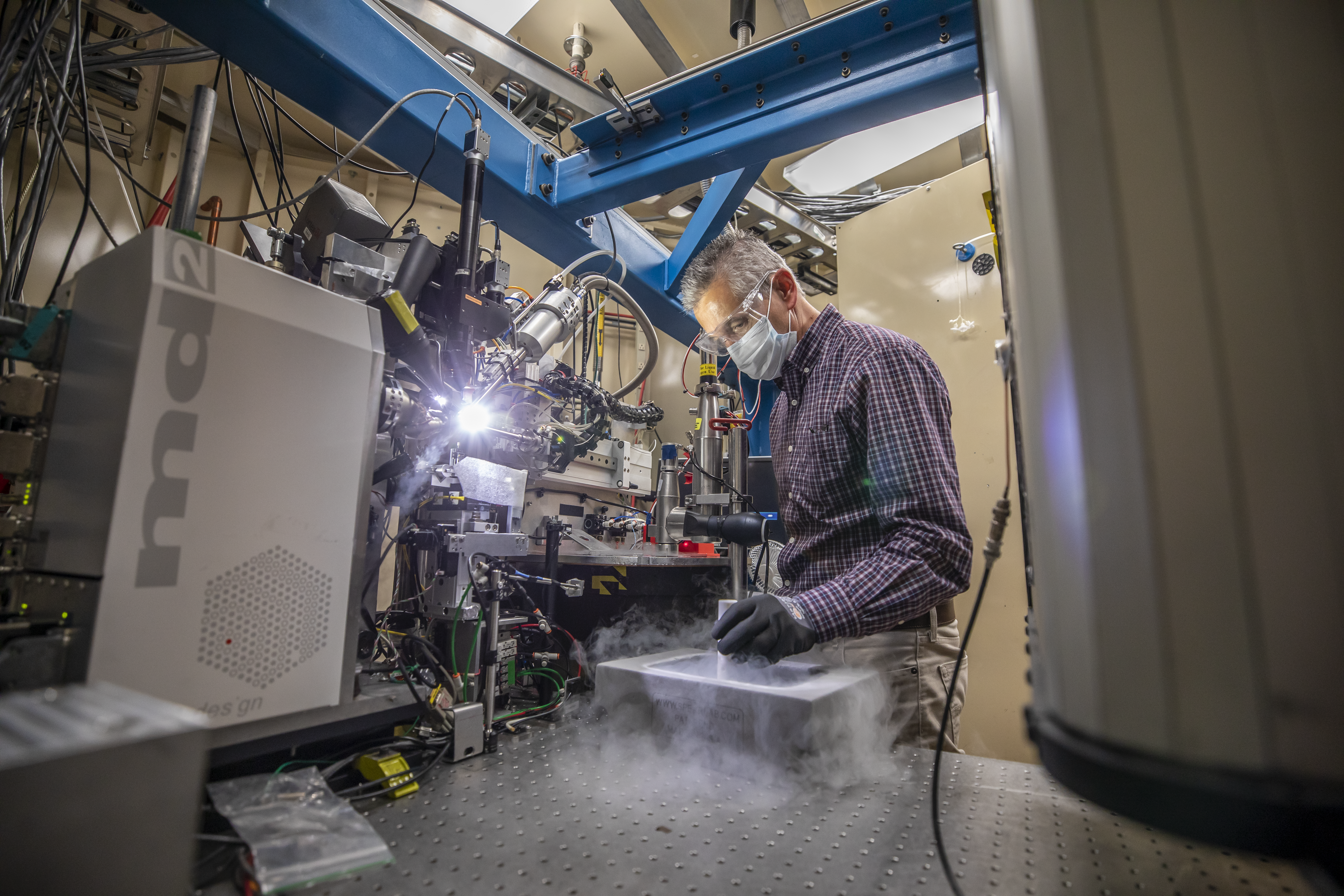For the past several months, teams of scientists at the U.S. Department of Energy’s Lawrence Berkeley National Laboratory (Berkeley Lab) have utilized our world-class research facilities to contribute to the national response to COVID-19, resulting in a wide range of promising research.
In these videos, Berkeley Lab scientists discuss five of the latest research projects, now under way at Berkeley Lab, which aim to help address some of the many scientific challenges posed by the pandemic.
Scaling-Up Production of New Tests and Treatments for COVID-19
The Advanced Biofuels and Bioproducts Process Development Unit, or ABPDU, is helping two biotech companies ramp up production of potential COVID-19-fighting technologies so they can be ready to meet global demand. One is a highly accurate, easy-to-use testing platform that is much speedier than current diagnostic methods; and the other is a rapid approach for generating antibodies, which may have the potential to be an effective treatment for COVID-19 infections. Go here for more information on this research.
Deciphering the Virus-Bacterial Cell Network
Experts from the DOE Joint Genome Institute and the Environmental Genomics & Systems Biology Division, both part of Berkeley Lab’s Biosciences Area, are studying environmental viruses to better understand how they interact with and infect host bacterial cells — and to rapidly translate the fundamental mechanisms observed into novel strategies for detecting and mitigating emerging infections by both viruses and drug-resistant bacteria. The team is also working to identify the molecular and ecological drivers of interactions between viruses and their hosts. This project spans biological scales, from single cells to complex communities, as well as the multiple stages in the infection process from host recognition to virus production.
Advanced Light Source Experiments Focus on Proteins from the Virus that Causes Covid-19
Scientists in the Biosciences Area are using X-ray technology at the Advanced Light Source to gain a better understanding of the structure of the COVID-19 virus’s molecular machinery. By mapping the structure of the proteins that the virus uses to infect cells, the researchers are providing critical information for other scientists working on drug and vaccine development. Go here and here for more information on COVID-19 research at the Advanced Light Source.
Fluorescent Sensors to Detect SARS-CoV-2 Contamination on PPE
Scientists at Berkeley Lab’s Molecular Foundry are working to understand if there is a fast and simple way to determine if personal protective equipment (PPE) such as masks have been contaminated with the virus that causes COVID-19. Their approach utilizes the latest in nanoscience and could help spot contamination on surfaces in busy hospitals using only a laser pointer.
Researching a Probiotic Vaccine for COVID-19
Building on promising work done by researchers at other institutions, synthetic biology experts at Berkeley Lab are exploring a delivery platform that would allow the vaccine to be administered orally at home, minimizing hospital visits and the use of syringes. The goal is to gauge the feasibility of a platform that uses strains of bacteria, which people typically consume as probiotics, to deliver SARS-CoV-2 proteins, which could potentially elicit an immune response that protects against infection.
The probiotic vaccine, Advanced Light Source, Molecular Foundry, and Joint Genome Institute projects are supported by the DOE Office of Science through the National Virtual Biotechnology Laboratory, a consortium of DOE national laboratories focused on the response to COVID-19, with funding provided by the CARES Act. The COVID-19 research performed at the ABPDU is supported by Caspr Biotech and Swiftscale Biologics. ABPDU is funded by the Department of Energy’s Bioenergy Technologies Office (BETO).
The Advanced Light Source, Joint Genome Institute, and Molecular Foundry are DOE Office of Science user facilities.
###
Founded in 1931 on the belief that the biggest scientific challenges are best addressed by teams, Lawrence Berkeley National Laboratory and its scientists have been recognized with 13 Nobel Prizes. Today, Berkeley Lab researchers develop sustainable energy and environmental solutions, create useful new materials, advance the frontiers of computing, and probe the mysteries of life, matter, and the universe. Scientists from around the world rely on the Lab’s facilities for their own discovery science. Berkeley Lab is a multiprogram national laboratory, managed by the University of California for the U.S. Department of Energy’s Office of Science.
DOE’s Office of Science is the single largest supporter of basic research in the physical sciences in the United States, and is working to address some of the most pressing challenges of our time. For more information, please visit energy.gov/science.
